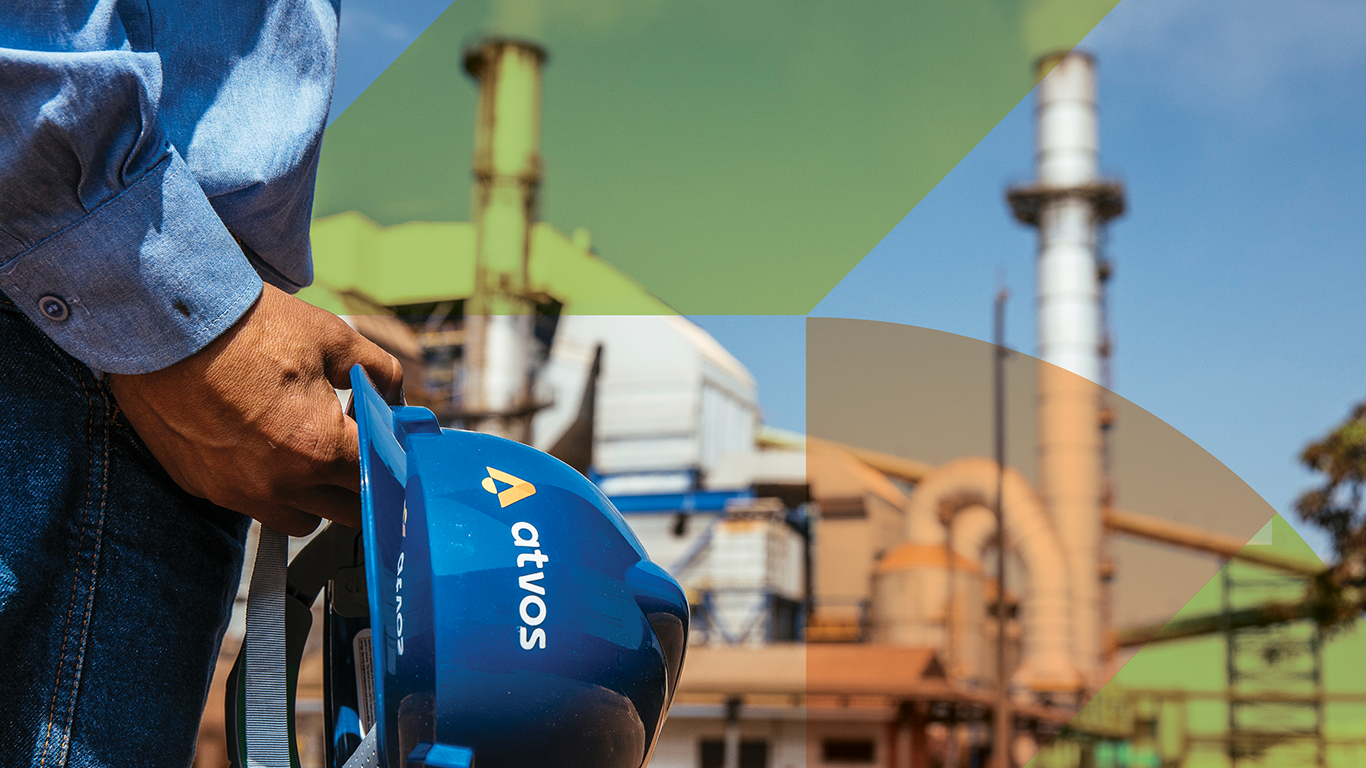
Founded more than ten years ago, Atvos Agroindustrial RJ operates in Brazil’s sugar-energy sector, producing ethanol and VHP (VeryHigh Polarization) sugar and generating renewable electricity from biomass, to help renew the Brazilian energy matrix and reduce its carbon footprint.
We grow sugarcane in an area of 498,000 hectares and we transform it into products that generate sustainable energy in eight* industrial units, divided between five production hubs in four Brazilian states.
Alcídia unit – not operational.
In the 2019/2020 crop year, we further expanded the Sugarcane Suppliers Program in line with our strategy for optimizing our resources and maximizing the use of industrial assets. We also observed maturity of process and results of investments made in the past years.

In the 2019/2020 crop year, we recorded a series of advances in compliance and risk management, in line with our Business Culture and our policy on Compliance with Ethical, Honest and Transparent conduct:
At the beginning of the 2019/2020 crop year we filed for judicial reorganization with the courts of the state of São Paulo for the purpose of financially restructuring the company to maintain our operations and protect our suppliers and partners. In the 2020/2021 crop year we moved ahead with the approval process for our reorganization plan, which will strengthen our capital structure and allow resumption of investments for the sustainability of our business.
Our Board of Directors was temporarily dissolved in the 2019/2020 crop year. The judicial reorganization plan approved by the creditors Atvos, which is still awaiting court approval, provides for our management to be restructured as follows:
Agricultural and Financial Inspectors will also have to be employed and maintained until the judicial reorganization is over, to monitor and oversee operating and financial indicators and compliance with the reorganization plan.
The 2019/2020 crop year was also decisive for guaranteeing the accreditation of all the operating units in the National Policy onBiofuels, or RenovaBio. With an average energy efficiency score of 60 gCO2/MJ, almost all the sugarcane produced was audited and, as a result, we have the potential to issue over 2 million decarbonization credits (CBIOs) in the 2020/2021 crop year.
So, we generated pre-CBIOs referring to sales of ethanol produced by the units at Conquista do Pontal (SP), Eldorado (MS), Santa Luzia (MS) and Rio Claro (GO). Looking ahead, we believe in the success of the program, which is at the forefront of pricing carbon, representing effective action in the fight against global warming. It will drive an energy matrix for cleaner transportation and, consequently, improve the quality of the air in Brazilian cities and the life of society.
Our actions are based on concepts aligned with global demands for sustainable development. Our Sustainability Policy links our challenges and strategies with market trends and good corporate practices. Our Business Model is correlated with important issues for Atvos, from an internal perspective and from the perspective of external stakeholders, which are aligned with the Global Compact Sustainable Development Goals (SDG).
